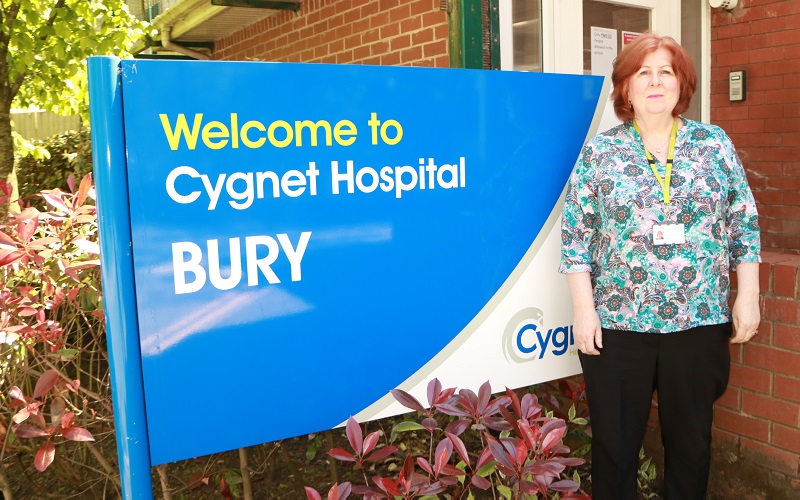
By Clare Shard, Head of Interpreting Service, Cygnet Hospital Bury
During the current COVID 19 situation there are a group of people who are experiencing difficulties in accessing information about the health implications of the virus if they or people they share their home have symptoms or contract it.
The UK Deaf community of approximately 70.000 people have had little access to public announcements due to a lack of the daily updates being translated into British Sign Language (BSL). If they are to experience symptoms or contract the virus then the daily updates on how to contact healthcare providers are often inaccessible to many Deaf people. Local arrangements may be completely different from before the pandemic and many Deaf people are feeling isolated, without any of their usual support systems or communication support.
There are currently no identified manufactures of EU regulated CE marked PPE for Deaf people that ensures accessible communication while providing protection for health care workers during examination or healthcare procedures. There is a desperate need for the Department of Health and UK manufacturers to work together produce a face mask that conforms to EU Safety, Health and Environmental requirements and allows the 6 million people in the UK, who rely on lip-reading, to be able to understand their health care provider.
It is impossible to communicate effectively or accurately while wearing a moisture resistant face mask. There are current discussions about whether wearing one should become the norm to enable to get people back to work by wearing a face mask and socially distancing. Wearing a face mask is a controversial decision with many healthcare professionals debating on the efficiency of the masks if they are not worn and disposed of correctly.
For the millions of people with deafness or hearing loss, whole communities wearing face masks presents a barrier to communication and also a risk of being exposed to inaccessible safety information. Someone talking may not realise the person they are talking to is Deaf or hard of hearing and relying on lip-reading to communicate and the Deaf person may not even realise that they are being spoken to or warned of a risk to their health or safety.
British Sign Language is a visual language and comprises of signs accompanied by facial expression and lip pattern. To be able to communicate effectively the Deaf person must be able to clearly see the mouth and lips of the person they are communicating with. It is a real technical challenge for a manufacturer to design and develop a mask that complies with safety standards, provides adequate protection, is comfortable to wear for a full shift and is breathable, which does not steam up. Full face visors are currently being used but these offer additional protection when social distancing rather than the filtration provided by face masks.
British Sign Language Interpreters are being used in many medical settings via video remote interpreting (VRI) but for some Deaf people needing face to face healthcare this is not appropriate or accessible. This is especially true for Deaf people with a mental health problem, physical health problem or learning disability that prevents them from being able to easily access information.
If BSL Interpreters had access to transparent face masks, far more face to face consultations could take place effectively and safely. It would be amazing if local or national manufacturers would consider accepting the challenge of producing this much needed item of PPE that is currently unavailable but needed by millions of UK residents.
About the author
Clare is a qualified BSL Interpreter and has worked for Cygnet Hospital Bury for over 18 years. She was part of the original staff team to develop the first medium secure service for Deaf people with a mental health condition in conjunction with the NHS. Clare is currently a member of NHS England Deaf Working Party and she is also a CQC Special Advisor.
Clare works closely with clinicians and other members of the care team to ensure that Deaf patients have access via BSL to their care and treatment. Cygnet Hospital Bury are one of the largest employers of Deaf professionals in a mental health setting in the UK and as Head of Service, Clare is responsible for co-ordinating communication for the hospital’s Deaf Service.